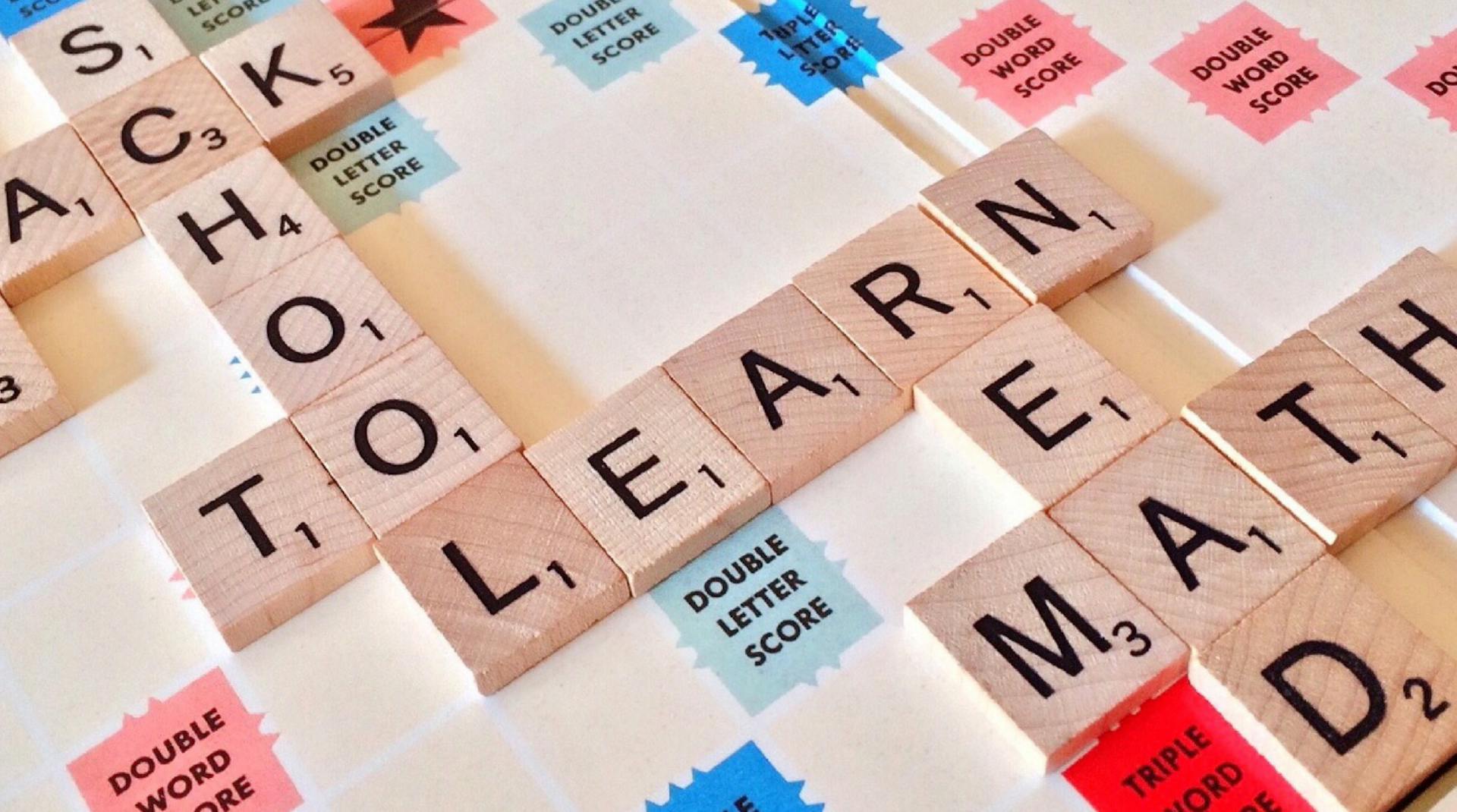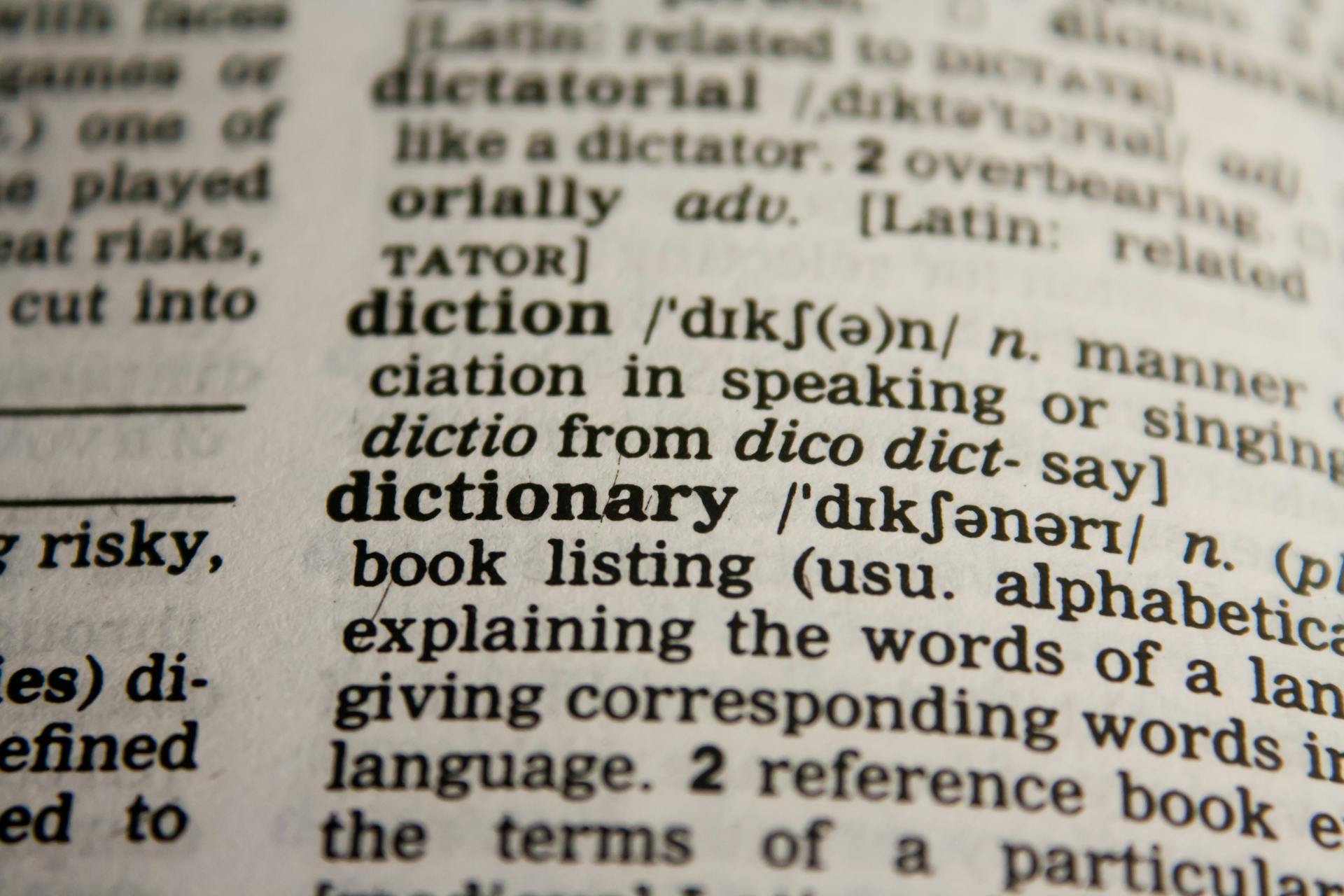
Mastering English verb tenses is a crucial step towards speaking English correctly. It's one of the most important aspects of learning the language, and it can be quite challenging for non-native speakers. However, with some practice and guidance, you can easily become proficient in using different verb tenses in your daily conversations.
This article provides a quick overview of various English tenses including present, past, future, and perfect tenses. We'll give plenty of verb tense examples to help you understand how to use them properly in sentences. Whether you're a beginner or an advanced learner, this comprehensive guide will help you improve your grammar skills and master the art of using English verb tenses correctly.
Discover more: Learn English Grammar Tenses
Demystifying the Concept of Tenses: A Comprehensive Guide
Simply put, tenses are verb forms that express time. They tell us when an action happened or will happen. There are three main tenses in English: past, present, and future. For example, if you say "I ate pizza yesterday," the verb "ate" is in the past tense, indicating that the action happened in the past.
The past tense is used to describe actions or events that happened before present time. In our pizza example, "ate pizza yesterday" describes an action that took place in the past. The present tense is used to talk about things happening now or ongoing actions. So if you say "I am eating pizza," the verb "eating" is in the present tense because it's happening right now. Finally, the future tense is used to talk about things that haven't happened yet. For instance, "I will eat pizza tomorrow" uses the future simple tense.
Understanding tenses can be tricky at first but with practice, it can become second nature. To summarize, there are three main tenses: past for something that already happened (e.g., ate pizza yesterday), present for something happening now (e.g., I am eating pizza), and future for something that hasn't happened yet (e.g., I will eat pizza tomorrow). With this basic knowledge of tenses under your belt, you'll be well on your way to speaking English with ease and confidence!
Consider reading: Present Simple in English
Discover the Comprehensive List of Verb Tenses in English!
Are you struggling with English verb tenses? Look no further! Here is a comprehensive list of standard tense forms in English. Let's start with the present tense, which uses the root form of the verb (e.g. "I walk" or "they eat"). For past tense, add "-ed" to the root form (e.g. "I walked" or "they ate").
Future tenses use modal verbs like "will" and "shall," followed by the root form of the verb ("I will walk" or "they shall eat"). Past present and future tenses can also be expressed through continuous tense forms, which show that an action is ongoing (e.g. "I am walking," "I was sleeping past night," or "they will be eating"). To add additional details to any of these tenses, you can use adverbs or other modifiers. With this list at your fingertips, mastering English verb tenses just got a whole lot easier!
If this caught your attention, see: English Language Subject Verb Agreement
1. Past, present, and future tenses
English verb tenses can be divided into three central divisions: past, present, and future. Each tense represents actions happening at different times.
The present tense represents actions that are currently happening or ongoing. The past tense, on the other hand, represents actions that happened earlier in time. Finally, the future tense describes actions that have not yet occurred but are expected to happen at some point in the future.
Understanding these three basic verb tenses is essential for effective communication in English. By using the correct tense, we can convey when an action took place or when it is expected to happen. So whether you're talking about something that happened yesterday, something that's happening right now, or something that will happen in the future, knowing how to use past, present and future tenses correctly will help ensure clear communication.
Curious to learn more? Check out: B2b English for Business Communication
Unleashing the Power of Emphatic Form in Expressing Yourself

The most powerful tool in expressing yourself is using the emphatic form. The emphatic form is used to emphasize stress, making your sentence more impactful and emotive. It can be used with all past tenses, allowing you to convey a range of emotions and attitudes through your words. By mastering this technique, you can make your writing more engaging and expressive.
To use the emphatic form effectively, you need to understand its structure and purpose. The structure involves placing an auxiliary verb before the main verb, followed by the subject. This emphasizes the action or emotion conveyed by the main verb. For example, "I did see that movie" puts emphasis on seeing the movie rather than just mentioning it in passing. By using this technique sparingly, you can bring attention to important details without overwhelming your audience with too much emphasis. So why not try experimenting with this powerful tool today?
Related reading: German Sentence Structure
The Connection between Participles and Tenses
In the previous section, we talked about special verb forms called English participles. Present participle and past participle are the two types of participles used in English. These participles help create continuous compound tenses, also known as progressive tenses. For example, "She is smoking" uses the present participle "smoking" to create the present continuous tense.
One great trick to remember when it comes to present participles is to not confuse them with neighboring house gerunds. The difference between these two is that present participles are used to create verb tenses, while gerunds act as nouns. For example, "Smoking is bad for your health" uses the health gerund.
Past participle is another type of participle that helps create perfect tenses and passive voice. In irregular verbs like "built," the past participle ends in "-t" or "-en." For example, "The house was built by my grandfather" uses the past participle "built" in passive voice. Remembering these simple rules will help you master English verb tenses!
Check this out: English Participles
Discover the Perfect Time to Learn English Tenses
If you're wondering when to start learning the 12 English tenses, the answer depends on your level. For beginners and intermediate learners, it's essential to have a solid grasp of basic English grammar and vocabulary before delving into verb tenses. Once you feel confident with these skills, you can start exploring the different tenses.
For advanced learners, bear in mind that teaching English tenses differently is a personal opinion based on experience. Some official exam institutions may require a more rigid approach to ensure students can communicate effectively in various situations. However, it's essential to understand that learning tenses isn't just about memorizing rules but also using them in context.
What's important when learning English tenses is having a precise idea of how they work and why they are used. Vague or unclear understanding will only create confusion and hinder progress. Therefore, take the time to study each tense thoroughly and practice using them until they become second nature. In conclusion, there isn't a perfect time to learn English tenses as it all depends on individual needs and goals. However, having a solid foundation in basic English skills before tackling verb tenses is crucial for success.
Readers also liked: Language Learning Plateaus
Effortlessly Master Perfect Grammar with These Tips
One of the easiest ways to avoid confusion when writing is to use consistent tense. For example, if you are telling a story in the past tense, make sure all your verbs are past tense. If you switch between present and past tense frequently, your readers may become confused about the timeline of events. By sticking to one tense throughout your writing, you can help your readers follow along more easily.
Another way to make your writing shine is to use proper verb tenses. As an example, consider the difference between "the crowd claps" and "the crowd clapped." The former sentence implies that the crowd is currently clapping, while the latter indicates that they have finished clapping. Similarly, using "laughed" instead of "laughs" can indicate that an action has already occurred in the past. By paying attention to verb tenses, you can create a more engaging narrative for your readers.
In conclusion, mastering English verb tenses is essential for any writer who wants their work to be taken seriously. Whether you're crafting a book review or sending an emailthis field is for validation purposes and should be left unchanged., consistent use of verb tenses can help you avoid confusion and make your writing more polished. So take these tips to heart and start improving your grammar today – after all, as some great music quotes remind us: "Practice makes perfect," and "if at first you don't succeed, try try again!"
You might like: English Descriptive Writing
Why Learning the Tenses in English Is Important
English tenses are essential for effective communication in the language. They help us to understand when an action happened, how long it lasted, and whether it is still ongoing or not. They also enable us to describe events, make predictions about the future, and talk about hypothetical situations. Without a proper understanding of English tenses, it can be difficult to express ourselves clearly and accurately in both spoken and written communication. Therefore, learning the different English tenses is crucial for anyone who wants to improve their proficiency in the language.
Worth a look: Conversational Level in a Language
1. English is a chronological language.
English is a chronological language, meaning that it places great emphasis on time and when an action happened. Each verb tense in English has a specific purpose for describing exactly when an event took place. For example, if someone says "I arrived yesterday," the past simple tense is used to describe an action that happened in the past.
Furthermore, English verb tenses can also be used to indicate future events, such as "I will arrive tomorrow." The use of the future simple tense clearly indicates that the speaker intends to do something at a specific point in time. Moreover, English verb tenses can even convey how an event was interrupted or cut short by another action. For instance, "the telephone rang" would be in the past simple tense while "the telephone ringing interrupted my conversation" would be in the past continuous tense. In summary, understanding English verb tenses is essential for accurately conveying when something happened and the context surrounding it.
2. Tenses can help you say what you actually want to say.
Tenses play a crucial role in communicating one's message accurately. It allows the speaker or writer to convey their thoughts with precision and clarity. Different tenses serve specific purposes, enabling speakers to express actions and events that happened in the past, are happening at the moment or will happen in the future.
For instance, let's take the simple present tense "drink water." This tense is often used to describe a daily repeated action such as drinking water. On the other hand, we have the present continuous tense "drinking water," which describes a moment action happening right now. Using the correct tense can help avoid confusion and ensure that your message is conveyed correctly. So next time you want to talk about any water action, make sure you use the correct tense!
3. English is a world language.
English is a world language and has become the main language of communication in many fields. Knowing English means knowing that you can communicate with friends, colleagues, and bosses from all around the world. English has become the most spoken language globally and is used as a common language for international trade, diplomacy, tourism, and education.
The importance of mastering English verb tenses cannot be overstated if you want to participate in the world conversation. It allows you to express yourself accurately and confidently in both written and spoken communication. Understanding how to use different verb tenses properly will help you convey your message precisely and avoid misunderstandings. So, if you want to be part of the global community, learning English verb tenses is essential!
4. Tenses will help you get fluent.
Tenses will help you get fluent in speaking English properly. Using the correct tense is crucial when it comes to communicating effectively in English. Whether you're describing your daily routine, talking about past events or future plans, using the appropriate tense can make a big difference in how well you're understood.
Even if you're an advanced learner, mastering the different verb tenses is essential for speaking fluently. It's all about being able to express yourself clearly and confidently in any situation. With regular practice and a solid understanding of tenses, you'll be well on your way to becoming a proficient English speaker. So don't neglect this important aspect of language learning – start mastering those tenses today!
Worth a look: English Public Speaking
5. Learning tenses can improve all your language skills.
Learning tenses can be a daunting task, but it can greatly benefit your language skills. Whether you're celebrating "happy birthday" with a friend or having a conversation with someone in English, using the correct verb tense is crucial for clear communication.
By understanding and practicing tenses, you'll be able to speak and write more confidently and accurately. You'll also be able to improve your ability to "speak listen" by being able to understand others' use of tenses. Additionally, watching TV shows or movies in English, listening to podcasts, or reading books can aid in solidifying your knowledge of verb tenses while improving all of your language skills at the same time.
Discovering the Different Verb Tenses in English
English verb tenses can be overwhelming at first, but understanding them is crucial for effective communication. There are 12 tenses in English, which can be grouped into present, past and future tenses. Each tense has its own unique structure and usage that convey different meanings and nuances.
The present tense includes simple, continuous, perfect and perfect continuous tenses. The simple present tense is used to describe habits or general truths while the present continuous tense is used for actions happening right now. The present perfect tense talks about actions that have been completed at an unspecified time while the present perfect continuous tense is used for actions that started in the past and are still continuing in the present. By mastering these groups of verb tenses, we can express ourselves more clearly and concisely in English conversations or writing.
Discover the Art of Understanding English Verb Tenses
Learning tenses is an essential part of mastering the English language. It is crucial to learn English grammar tenses to communicate effectively and accurately. Knowing how to use verb tenses correctly can make a big difference in your ability to understand and express ideas.
One effective way to learn English verb tenses is by understanding their purpose and usage. Each tense has a specific meaning, indicating the time of the action, whether it has been completed or not, and if it is ongoing or happening at a specific moment. By familiarizing yourself with the different verb tenses, you will be able to convey your message more clearly and accurately. So start learning tenses today and improve your English communication skills!
Curious to learn more? Check out: Benefits of Learning English
1. Divide them into past, present and future tenses.
A good technique for beginner learners of English is to divide the verb tenses into specific chunks or pieces. One way to do this is by dividing them into past, present, and future tenses.
The division of past, present, and future tenses helps learners to focus on one specific type of tense at a time, making it easier to understand and use correctly. Mixing points in the same sentence or paragraph can be confusing, especially for beginners who are still getting used to the different verb forms. By breaking down the tenses into these three categories, learners can practice each tense separately and then gradually learn how to mix them appropriately.
2. Divide them into pairs.
Making pairs is a great way to practice English verb tenses. Tenses share similarities and differences, and working in pairs can help learners identify them. For example, the continuous tenses (present continuous, past continuous, future continuous) all use the auxiliary verb "to be" plus a present participle. On the other hand, perfect continuous tenses (present perfect continuous, past perfect continuous, future perfect continuous) use "have/has been" plus a present participle.
In addition to identifying similarities and differences between tenses, making pairs can also help learners practice using them in sentences. For instance, learners could practice using the present simple tense by making sentences such as "I eat breakfast every day." They could then move on to practicing the present perfect tense by making sentences like "I have eaten breakfast already today." Finally, they could practice using both tenses in the same sentence by saying something like "I have eaten breakfast every day this week." Overall, dividing learners into pairs is an effective strategy for advanced learners who want to improve their understanding and usage of English verb tenses.
Check this out: More Americans Are Using Slang
3. Practice with online exercises and apps.
If you prefer learning English verb tenses through online exercises and apps, there are plenty of great resources available. One helpful tool is the WordReference English Conjugator, which allows you to quickly look up how to conjugate any English verb. On this page, you'll find a comprehensive list of all the different forms of each verb you're studying.
Additionally, Englisch-hilfende grammar exercises can also be a useful resource for practicing your English tenses. These exercises cover tenses ranging from simple present to past perfect continuous, and can help you hone your skills in areas that you may find difficult. Whether your goal is to improve your writing or speaking skills, these resources can be incredibly valuable in helping you master the intricacies of the English language.
Frequently Asked Questions
What is the past tense of a verb?
The past tense of a verb is a form that shows that an action or state happened in the past. For example, "walked" is the past tense of "walk."
What are some examples of sentences using verbs?
Examples of sentences using verbs are "I eat breakfast every morning," "She runs five miles a day," and "They sing in the choir on Sundays." Verbs are action words that show what someone or something is doing.
How to use tenses correctly?
To use tenses correctly, make sure to match the tense of your verbs with the time frame of your sentence. Use past tense for actions that have already happened, present tense for current actions, and future tense for upcoming events. Practice and reading can help improve your understanding of tenses.
What are the 12 verb tenses in English?
The 12 verb tenses in English are: present simple, present continuous, present perfect, present perfect continuous, past simple, past continuous, past perfect, past perfect continuous, future simple, future continuous, future perfect and future perfect continuous.
What are the three tenses of grammar?
The three tenses of grammar are past, present, and future. Each tense refers to a different time period and is used to indicate when an action takes place in a sentence.
Featured Images: pexels.com

